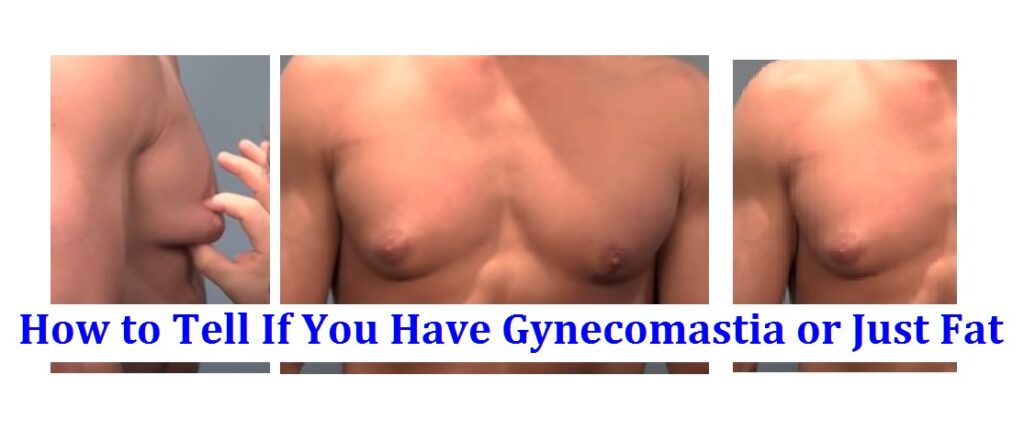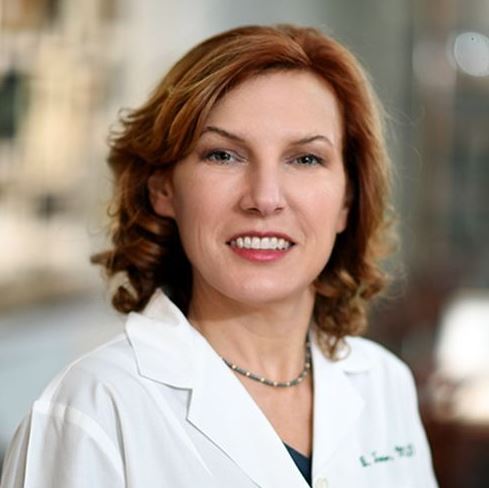Gynecomastia is the growth of glandular tissue under and around the nipple, while chest fast is an increase in adipose tissue under the nipples. You need surgery to treat gynecomastia, while you can treat excess fat without surgery.
In this article, you can discover how to tell if you have gynecomastia or just fat.
What is Gynecomastia
Gynecomastia is a condition in which the breast tissue in males increases in size, resulting in a more feminine appearance of the chest. The main causes are hormonal imbalances, certain medications, health conditions, or lifestyle factors such as obesity or excessive alcohol consumption.
Gynecomastia affects the male breast tissue by causing it to become swollen, tender, and even painful in some cases. The excess breast tissue can also lead to emotional distress, such as embarrassment, anxiety, or depression.

Distinguishing Chest Fat
Chest fat, also known as pseudo-gynecomastia or lipomastia, is an accumulation of excess fat tissue in the chest area that can give the appearance of enlarged breasts in males. Chest fat comes because of excess body weight or a sedentary lifestyle.
Excess chest fat can affect the male chest area by causing it to appear larger and rounder. It may also cause feelings of self-consciousness and body image issues in affected individuals.
Unlike gynecomastia, chest fat is not a result of enlarged breast tissue and does not involve hormonal imbalances. Instead, it is purely a result of excess adipose tissue in the chest area.
Read about the Differences between Gynecomastia and Chest Fat
How to Tell If You Have Gynecomastia or Just Fat
Gynecomastia Symptoms
The symptoms of gynecomastia include swelling and tenderness in the breast tissue of males. This can result in a more feminine appearance of the chest, with breast tissue that is larger, firmer, and more prominent. In some cases, gynecomastia can also cause breast pain or discomfort.
You can do a pinch test to distinguish between gyno and chest fat.
Additionally, affected individuals may experience emotional symptoms such as embarrassment, anxiety, or depression. The severity of gynecomastia symptoms can vary widely, from mild breast enlargement to significant breast tissue growth that requires medical intervention.
If you are experiencing symptoms of gynecomastia, seek medical attention to determine the underlying cause and receive appropriate treatment.
Symptoms of Chest Fat
The symptoms of chest fat typically involve the accumulation of excess adipose tissue in the chest area. This can result in a rounder, fuller appearance of the chest often referred to as “man boobs.” But if you do a pinch test, they tissue will feel soft and not hard.
Affected individuals may also experience emotional symptoms such as insecurity, low self-esteem, or body dysmorphia. Unlike gynecomastia, chest fat does not typically cause breast tenderness or pain, nor does it involve swelling or enlargement of breast tissue.
Instead, it is purely a result of excess fat tissue in the chest area. Diet and exercise are often effective ways to address chest fat, though in some cases, medical interventions such as liposuction may be necessary to achieve desired results.
Read about Gynecomastia Treatment
When to See a Doctor about gynecomastia
Consult a doctor if your condition persists for over two years or worsens over time. A doctor can help determine the underlying cause of the condition and provide effective treatment options.
Additionally, if you are experiencing emotional distress or significant discomfort related to the condition, it is important to seek medical attention.
Some signs that it may be time to see a doctor include breast pain or tenderness, nipple discharge, significant breast enlargement, or a change in breast shape or texture.
Is it gynecomastia or just fat
Gynecomastia is a medical condition that causes breast tissue to develop in males. Causes of gynecomastia include hormonal imbalances, certain medications, and underlying medical conditions. In contrast, excess chest fat is typically the result of poor diet and lifestyle habits.
Both conditions may cause embarrassment and self-consciousness in males. Now you know how to tell if you have gynecomastia or just fat. Gynecomastia is often confused with excess chest fat, but the two are distinct conditions.
